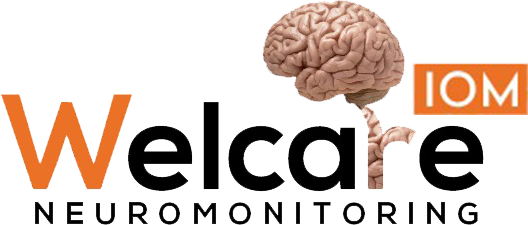About Clinical Neurophysiology
The Electro-Neurodiagnostic Technologist will use the diagnostic testing procedures of an electroencephalograph machine to measure the electrical activity of the brain, the spinal cord, the peripheral nerves, and the somatosensory systems.
Electroencephalography(EEG)
An EEG can determine changes in brain activity that might be useful in diagnosing brain disorders, especially epilepsy or another seizure disorder. An EEG might also be helpful for diagnosing or treating the following disorders
- Brain tumor
- Brain damage from head injury
- Brain dysfunction that can have a variety of causes (encephalopathy)
- Inflammation of the brain (encephalitis)
- Stroke
- Sleep disorders
Nerve Conduction Studies(NCS)
NCS, an electrical charge is delivered to a peripheral nerve. That charge is carried down the nerve and generates a muscle contraction. A recording electrode is placed on a muscle innervated by that nerve, and information about the impulse can be recorded, including its latency (the time needed for the impulse to travel from stimulus to recording). The distance traveled and the nerve conduction velocity (NCV) can also be computed.
Electromyography (EMG)
Electromyography (EMG) is a diagnostic procedure that evaluates the health condition of muscles and the nerve cells that control them. These nerve cells are known as motor neurons. They transmit electrical signals that cause muscles to contract and relax. An EMG translates these signals into graphs or numbers, helping doctors to make a diagnosis.
A doctor will usually order an EMG when someone is showing symptoms of a muscle or nerve disorder. These symptoms may include tingling, numbness, or unexplained weakness in the limbs. EMG results can help the doctor diagnose muscle disorders, nerve disorders, and disorders affecting the connection between nerves and muscles.
Quisque semper congue dolor, nec ultrices quam convallis rhoncus. Duis rhoncus sed lacus a facilisis.
Transcranial Doppler Extracranial Doppler (TCD/ECD)
Transcranial doppler (TCD) ultrasound is a painless test that uses sound waves to detect medical problems that affect blood flow in your brain. It can detect stroke caused by blood clots, narrowed sections of blood vessels, vasospasm due to a subarachnoid hemorrhage, tiny blood clots
Polysomnography(PSG)
Polysomnography, also called a sleep study, is a comprehensive test used to diagnose sleep disorders. Polysomnography records your brain waves, the oxygen level in your blood, heart rate and breathing, as well as eye and leg movements during the study
